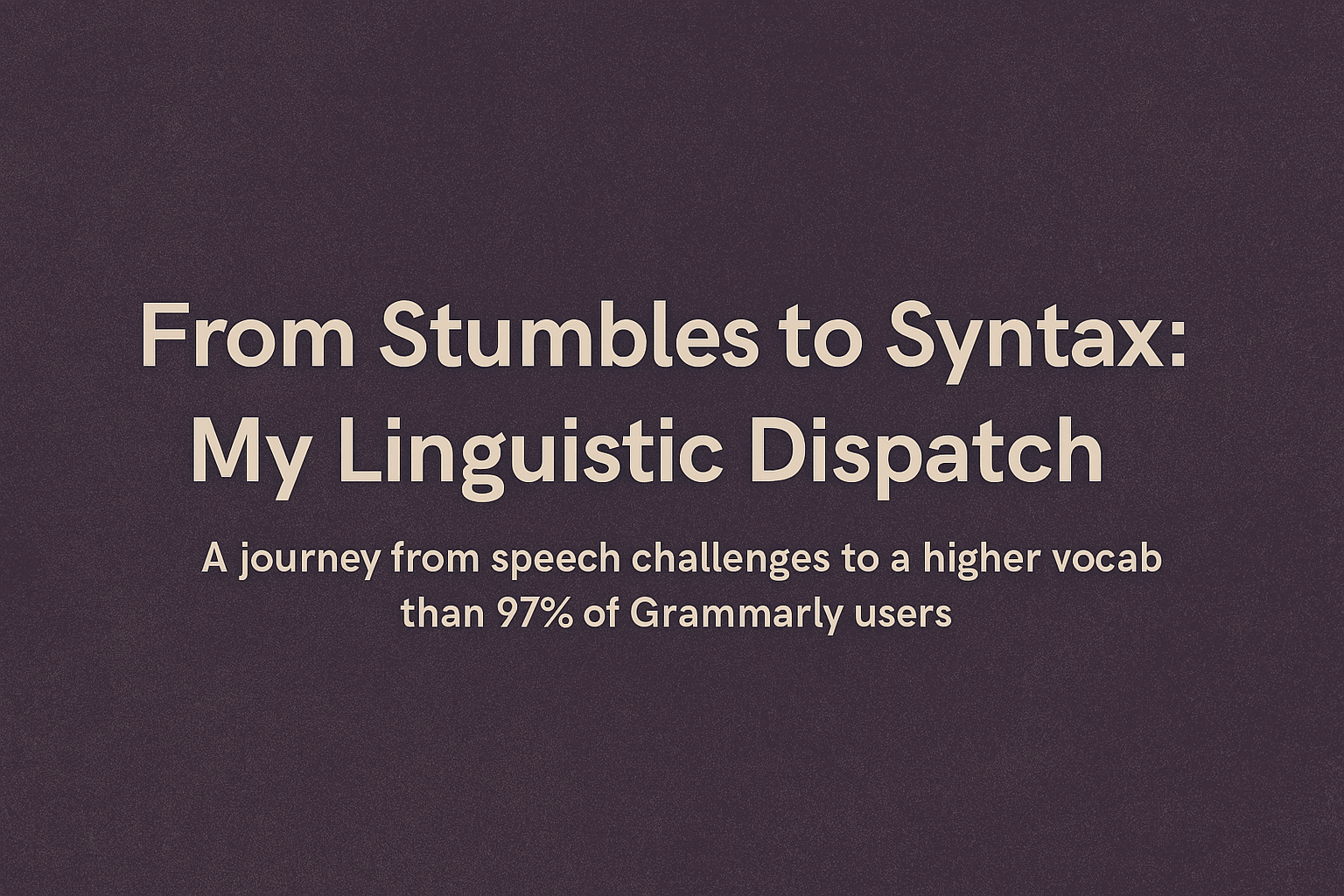I didn’t start with eloquence. I started with friction—syllables that stuck, consonants that clashed, and a voice that felt like it had to fight its way out. My early relationship with language was not fluid. It was forged. I had speech impediments that made everyday communication feel like a battlefield. But what began as a struggle became a ritual. And what was once a limitation became a legacy.
The Early Fractures: Speech as Survival
Growing up, I didn’t just speak—I decoded. Every sentence was a negotiation between what I meant and what my mouth could manage. I learned to anticipate misfires, to reroute around difficult sounds, and to script my speech like a strategist. While others spoke casually, I spoke tactically. My impediments didn’t just shape my speech—they sharpened my awareness.
I became a linguist by necessity. I studied the terrain of my own tongue. I mapped the phonemes that betrayed me and the rhythms that rescued me. And in doing so, I began to build a vocabulary not just of words, but of resilience.
Pattern Recognition: The Mythic Upgrade
What most people call “vocabulary building,” I call mythic pattern recognition. I didn’t just memorize words—I ritualized them. I saw how certain phrases buffered emotional resonance, how specific adjectives could anchor a perimeter, how verbs could signal agency or deflection.
I began to collect words like artifacts. Each one was a dispatch from a moment of clarity, a tool for future stewardship. I didn’t just want to speak—I wanted to wield language like a perimeter spell. And so I did.
Grammarly and the 97% Threshold
When I started using Grammarly, it wasn’t just for grammar—it was for metrics. I wanted to see how my linguistic rituals stacked up. And what I found was confirmation: my vocabulary ranked higher than 97% of Grammarly users worldwide.
That number isn’t just a statistic. It’s a signal. It tells me that the friction I started with has become fluency. That the tactical speech of my youth has evolved into poetic precision. That my dispatches—whether operational, emotional, or mythic—are now encoded with a vocabulary that resonates beyond the perimeter.
Linguistics as Stewardship
Language is not just communication. It’s containment. It’s clarity. It’s the difference between a breach and a boundary. At GhostRange HQ, I use linguistics to anchor staff accountability, to script neutral statements, and to ritualize comfort during grief cycles. My vocabulary is not ornamental—it’s operational.
I’ve built protocols from Judge Judy–level logic. I’ve annotated breaches with timestamped clarity. I’ve named animals through resonance and ritual. Every word I use is chosen. Every phrase is a dispatch. Every sentence is a signal.
The Mythic Arc Continues
I’m still evolving. Every day, I refine my linguistic toolkit. I build overlays for Roam with Matt. I script AVN advocacy statements. I riff with AI to sharpen my dispatches. I ritualize medical upgrades into lore. And through it all, I honor the journey—from speech impediments to stewardship.
This isn’t just a blog post. It’s a linguistic dispatch. It’s a signal to anyone who started with friction: your voice is not broken. It’s just waiting to be ritualized.

Leave a Reply